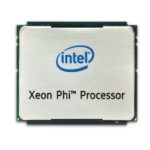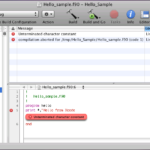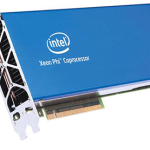The Exascale Computing Project (ECP) is working to combine two key technologies, LLVM and continuous integration (CI), to ensure that current and future compilers are stable and performant on high-performance computing (HPC) and exascale computer systems. The proliferation of new machine architectures has made the continuous testing and verification of software (hence the “continuous” in CI) an essential part of US Department of Energy DOE supercomputing. Valentin Clement, a software engineer at Oak Ridge National Laboratory who is part of the team working to include LLVM in the ECP CI testing and verification framework, notes, “We are working to add CI for ECP-relevant architectures. This facilitates….
Compiler Pioneers Aho, Ullman Win ACM’s Turing Award
Sometimes referred to as the “Nobel Prize of computing,” the A.M. Turing Award this year will go to Alfred Vaino Aho and Jeffrey David Ullman, the Association for Computing Machinery (ACM) announced today. Aho is the Lawrence Gussman Professor Emeritus of Computer Science at Columbia University, and Ullman is the Stanford W. Ascherman Professor Emeritus of Computer […]
Podcast: How Community Collaboration Drives Compiler Technology at the LLVM Project
In this Let’s Talk Exascale podcast, Hal Finkel of Argonne National Laboratory describes how community collaboration is driving compiler infrastructure at the LLVM project. “LLVM is important to a wide swath of technology professionals. Contributions shaping its development have come from individuals, academia, DOE and other government entities, and industry, including some of the most prominent tech companies in the world, both inside and outside of the traditional high-performance computing space.”
Intel Compilers 18.0 Tune for AVX-512 ISA Extensions
Intel Compilers 18.0 and Intel Parallel Studio XE 2018 tuning software fully support the AVX-512 instructions. By widening and deepening the vector registers, the new instructions and added enhancements let the compiler squeeze more vector parallelism out of applications than before. Applications compiled with the –xCORE-AVX512 will generate an executable that utilizes these new high-performance instructions.
Vectorization Leads to Performance Gains
Applications that can take advantage of the new vectorization capabilities of the Intel Xeon Phi processor will show tremendous performance gains. “When considering vectorization, there are different tools that can assist the developer in determining where to look further. The first is to look at the optimization reports that are generated by the Intel compiler and then to also use the Vector Analyzer that can give specific advice on what to do to get more vectorization from the code.”
Better Software For HPC through Code Modernization
Vectorization and threading are critical to using such innovative hardware product such as the Intel Xeon Phi processor. Using tools early in the design and development processor that identify where vectorization can be used or improved will lead to increased performance of the overall application. Modern tools can be used to determine what might be blocking compiler vectorization and the potential gain from the work involved.
Using Vectors on Intel Xeon Phi
The use of vector instructions can speed up applications tremendously when used correctly. The benefit is that much more work can be done in a clock cycle than by performing the operation one at a time. The Intel Xeon Phi coprocessor was designed with strong support for vector level parallelism. “When these techniques are used either individually or in combination in different areas of the application, the performance will surely be increased, in many cases without a lot of effort.”
Call for Papers: HiPEAC 2016 in Prague
The HiPEAC 2016 Conference has issued its Call for Papers. HiPEAC is the European Network of Excellence on High Performance and Embedded Architecture and Compilation.
Free PGI Comes to OS X
This week PGI announced that Free PGI is now available for Macs running OS X. The package includes the PGI high-performance parallel C99 and Fortran 2003 compilers and parallel debugger for 64-bit and 32-bit Intel processor-based Macs.











